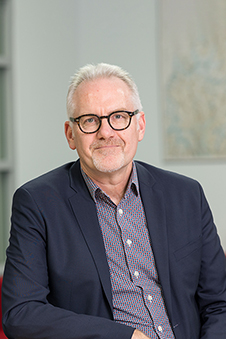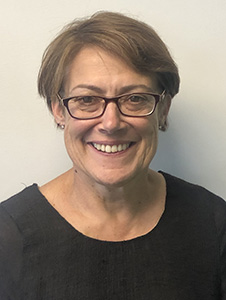Learn lessons from our COVID-19 response, or our health system could suffer the consequences.
That's the leading message from a group of five academics from the Universities of Otago, Canterbury and Massey, who say a failure to learn from this and previous outbreaks could result in a loss of time, knowledge and momentum for future crises.

Professor David Murdoch
Professor David Murdoch, the Dean of University of Otago in Christchurch, is the lead author on the editorial piece in the latest issue of the New Zealand Medical Journal this morning.
The paper reflects on the Independent Panel for Pandemic Preparedness and Response's report into COVID-19, and says that while our health system has coped well, there is still plenty to learn.
“This history of pandemics reminds us that we have failed to learn from past experiences. We need to reverse this trend and start preparing for the future, informed by the lessons and impacts from COVID-19.”
As well as highlighting some of the strengths offered by successful countries such as Aotearoa, the paper also analyses the recommendations offered by the panel. This includes the formation of the Global Health Threats Council, more independence for the World Health Organisation, national pandemic coordinators, greater global financial investment as well as better systems and platforms for distribution of vaccines.
Professor Murdoch says there are considerable ways we can build our preparedness following the COVID-19 outbreak. One of those is the establishment of a formal network of expertise across a broad range of disciplines.

Professor Sue Crengle
“Identifying and utilising the right expertise was often quite patchy in our response to COVID-19,” he says.
“We also need much more flexible plans to deal with future pandemics. The pandemic plan we had at the beginning of last year was pretty much focused on influenza alone.”
The paper also states Māori and other groups who experience inequities need to be involved in all preparedness activities and planned responses to ensure they prevent the development of, or increase existing, inequities.
Co-author Professor Sue Crengle from the University of Otago's Department of Preventive and Social Medicine says it is particularly important that kaupapa Māori and Māori-led responses to the pandemic are incorporated in preparedness and planned responses.
“Pandemic plans need to include Māori responses such as those we saw during this COVID pandemic – activated during the initial responses and with appropriate resourcing.”
For more information, contact:
Professor David Murdoch
Dean
University of Otago, Christchurch
Email david.murdoch@otago.ac.nz
Professor Sue Crengle
Department of Preventive and Social Medicine
University of Otago
Email sue.crengle@otago.ac.nz
Matiu Workman
Communications Adviser (Māori)
Tel +64 3 479 9139
Email matiu.workman@otago.ac.nz
Find an Otago expert
Use our Media Expertise Database to find an Otago researcher for media comment.